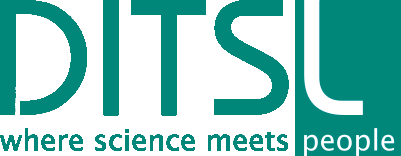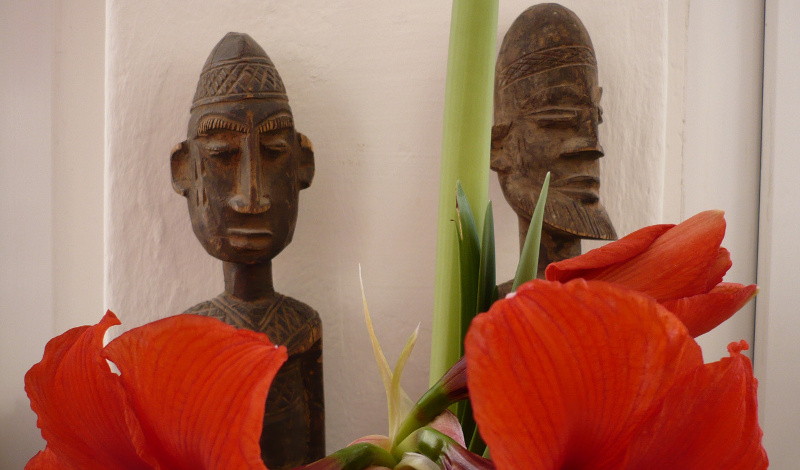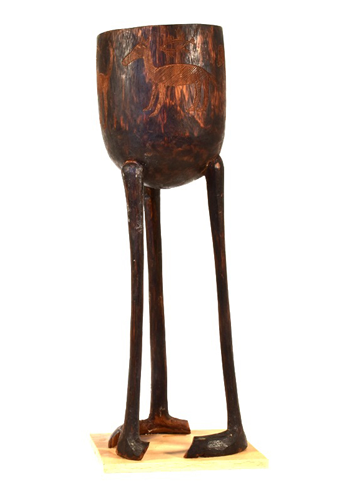 |
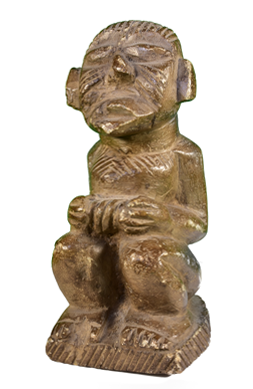 |
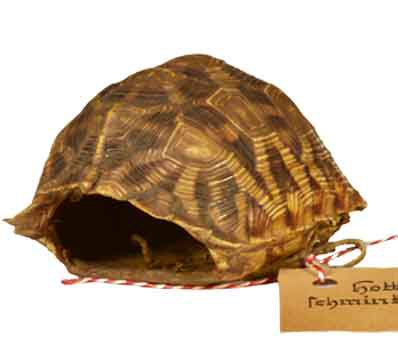 |
The collection
The so-called "ethnographic collection" of DITSL shown in the museum was created from 1900 onwards through donations from graduates and associated persons of the former German Colonial School (DKS) in Witzenhausen. Actively encouraged by its director, they collected minerals, plants, horns, skins, utensils, jewellery, weapons, religious or ceremonial objects and also human remains - bones and skulls - "outside" in the colonies of the time. They sent these to "their old school", where they were inventoried, exhibited and used as illustrative material in lessons.
The collection continued to grow after the Second World War. Donations and loans now came from students and teachers of the DITSL and the University of Kassel (founded in 1971), who were active in science or development cooperation in tropical countries. Even today, the collection continues to receive objects from former members of these institutions or from their descendants. Today, the collection is owned by the DITSL, while the museum building is owned by the Stiftung Völkerkundliches Museum Witzenhausen.
In 2020, the collection comprises approximately 2300 objects. Little is known about the majority of these objects. Often there is no information about the donors, but even more often there is no information about the exact origin, the time and the circumstances of the acquisition, or about the routes that the objects took before they finally reached the collection. The makers and users of the objects in the societies of origin usually remain completely hidden.
The history of the objects before they enter the museums can reveal a lot: Information about the collectors, about their attitudes, views and values, about the relationships between different societies and nation states, different cultures and milieus. What happens to the objects in museums and collections, what they are used for, also reflects views, perspectives and attitudes. To fathom and reconstruct the history of objects is the goal of so-called provenance research.
By their very nature, the histories of exhibits in collections and museums can only be incompletely documented. The Museum Witzenhausen and DITSL are attempting to expand the stories surrounding the exhibits in the collection by as many perspectives as possible and to make them transparent through provenance research in cooperation with academic institutions at home and abroad. This is also intended to contribute to a critical social debate on colonial history and post-colonial developments and the present-day relations between different societies worldwide.
The museum is not open from October to March:
Guided tours and workshops on request
Contact: Email This email address is being protected from spambots. You need JavaScript enabled to view it., Phone 05542 6070
